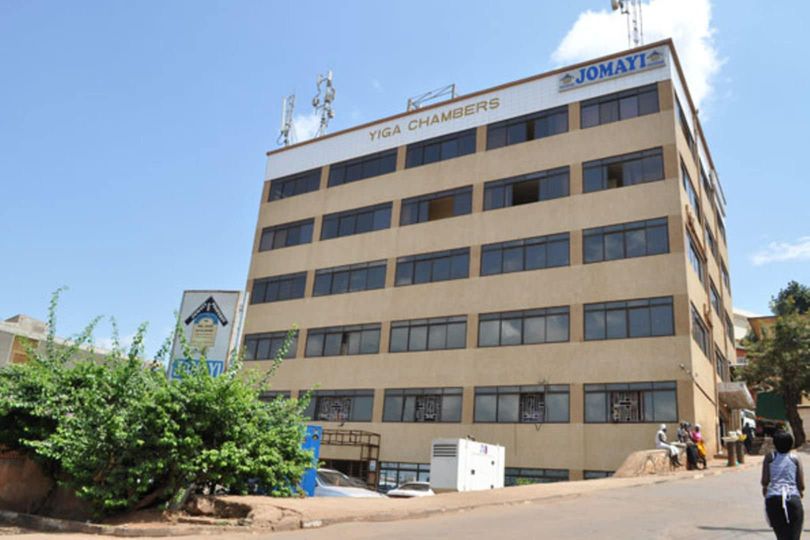By Denis Jjuuko
More than 20 years ago, a man set up an office at the current Serena Conference Centre. He seemed to have a huge advertising budget and didn’t spare a coin in pushing his product. Newspapers featured him. Radio presenters talked about him.
I was in active journalism at the time and looked out for him. He gave me an appointment at 4.30am. Any chance to change to a favorable time fell on deaf ears. 4.30am, or nothing. I agonized. How would I make it from my home to his office in the middle of Kampala? I was about to accept but he wasn’t the Pope, US President or Osama bin Laden. Why would he only have time at 4.30am? The article I was to write was to enhance his profile for free. But I also thought he was pretentious, trying to prove to a journalist that he works so hard. I gave up on him.
A few months later, his property brokering business started foundering. He never owned the properties he advertised. He was a broker. But he was smart enough to set up an office at a fancy location. Most of his colleagues operated on the streets of Luwum and William. Those who had found a fortune, their Toyota Mark IIs were their offices and impressing meant wearing sharp pointed fake-crocodile skin shoes.
Since he was different, with an office, people trusted him and gave him their money. Some of the people who had told him they owned the land were fraudulent. The land either didn’t belong to them or the families were fight for every square foot of it. Since he was the one making the connection between the buyer and seller and sometimes received money from clients, whoever didn’t get their land came for him. He would end up on the beaches of Luzira.
Having learnt from him, another broker went a step further and set up a dingy office in Old Kampala. Although it wasn’t glamorous, he had one unique aspect about him — he and his associates owned the land. He bought large swatches of land in areas like Kulambiro, Buwaate, Kira and divided them into 50×100 feet plots (approximately 11.5 decimals).
Kampala was expanding at the time beyond its original seven hills. People who had seen their retrenched or retiring parents move from fancy homes in Kololo into poverty thought to act differently. They would build houses. The economy was growing, and a semblance of a middle class was emerging.
There was a ready market of people streaming to his Old Kampala office to buy land. Unlike his Serena Conference Centre predecessor, land titles were easily availed to whoever purchased from him. He too advertised heavily, promising Ugandans to live in organised estates with access roads and all that. People saw an opportunity to live in a community that was not too much of a slum at an affordable rate.
Before a place sold out, another new estate would be opened. Eventually, there was an estate on every major road to Kampala to cater for every purchaser’s interests. You know how Kampalans love living near highways that lead to their ancestral villages!
To further impress, he put up a mega building in Old Kampala and expanded into a quarry business along Jinja Road. A building hardware shop was set up, if you bought a plot of land, he would give you a few bags of cement so you could start building your dream home!
Anyway, that growth was funded by banks which meant they would hold on to the land titles. So, people who purchased land took away agreements instead of titles. Some of the land was far away from the city yet the majority of his clients were first home owners. The others were speculators involved in land banking. The estates were not selling out at the previous rates. People who needed their titles were not getting them. That led to people stopping buying from him. The original landlords were also in some cases not fully paid. Court appearances became his preoccupation.
The other week, the banks won a case against him that declared him bankrupt. It was one of the saddest stories of Ugandan entrepreneurship. A self-made man who had made it to the top. Yet he is not the only Ugandan real estate entrepreneur to go under.
One of the challenges of real estate in Uganda especially the one where the model is buying land and parceling it into small plots for selling is that most of these estates are deep in areas that lack access and basic services today. First home owners shun them yet they don’t have resources to buy in their preferred areas. Second home owners already have land in areas that these estates sold 10 or so years ago. Or they are looking for bigger land for their country homes. Other investment vehicles like treasury bonds and unit trusts are competing with land banking.
Wrangles over land are common as family members of the original owner always come up with counter claims against each other. Squatters are everywhere and they are more protected than the owners in some cases. Police is not competent or facilitated to investigate these cases. Courts take forever to decide these cases.
Yet home ownership is one way that countries develop. People who own homes won’t wake up to burn a city down. They work hard for its development because they have something to lose. If we need to develop this country, we must devise means that enable young people to easily own homes.
The writer is a communication and visibility consultant. djjuuko@gmail.com










